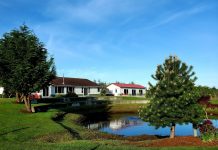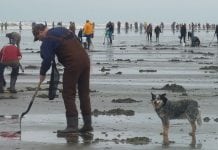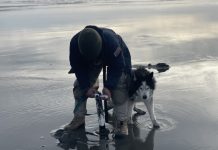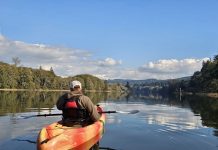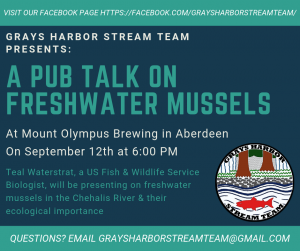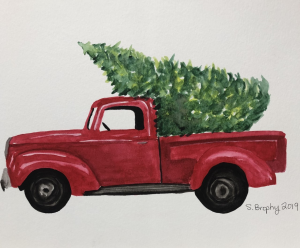This calendar is the place to find fun events happening throughout Grays Harbor County including Aberdeen, Hoquiam, Westport, Ocean Shores, Elma, Montesano and beyond.
Have an event that isn’t listed? Please email events@GraysHarborTalk.com with the following information:
- Name of Event
- Date, time and location (name of business if applicable and complete address)
- Organizer(s) name
- Cost
- URL to purchase tickets
- Website URL
- SHORT description of event
- Photo
Our editors will review and post within a few business days.
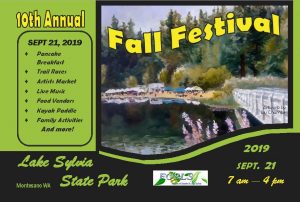
10th Annual Lake Sylvia State Park
FALL FESTIVAL
Saturday, September 21, 2019 at 7 AM – 4 PM
Lake Sylvia State Park – 1813 Lake Sylvia Rd North Montesano, WA
https://www.facebook.com/LakeSylviaStateParkFallFestival/
Pancake Breakfast
7 am—11 pm $5
Trail Races 8:30 am
Half Marathon / 10K / 5 K
Artists Market 9 am—4 pm
Food Booths and Live Music
Historic Talk by “Doc Shores” 1 pm
Kayak Paddle 2 pm
Kids Vintage Games and Nature Crafts
Educational booths by Stream Team
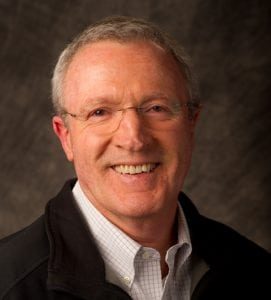
Tom Quigg, proud Harborite, Port of Grays Harbor Commissioner, and Real Estate Broker, will provide an engaging presentation on notable Harborites through the years and their impact on the world. The public is welcome and refreshments will be served. This will be a fun event for newcomers to the Harbor and for long-timers alike. We hope you will join us!
Razor clam diggers may be able to return to Long Beach for a three-day opening beginning Sept. 27, pending favorable marine toxin results later this month.
The upcoming dig is proposed for the following dates and morning low tides:
- Sept. 27, Friday, 5:52 a.m. -0.9, Long Beach only
- Sept. 28, Saturday, 6:36 a.m. -0.8, Long Beach only
- Sept. 29, Sunday, 7:19 am -0.6, Long Beach only
Final approval of the scheduled opening will depend on whether results of marine toxin tests show the clams are safe to eat. No digging would be allowed after noon.
“We know people have been looking forward to digging razor clams at Long Beach, and we’re pleased to say we believe based on our surveys that the beach is going to enter the line-up more frequently this fall and winter,” said Dan Ayres, WDFW coastal shellfish manager.
All diggers age 15 or older must have an applicable 2019-20 fishing license to harvest razor clams on any beach. Licenses, ranging from a three-day razor clam license to an annual combination fishing license, are available on WDFW’s website at https://fishhunt.dfw.wa.gov and from license vendors around the state.
“There will be some terrific razor clam digging in the months ahead,” said Ayres. He and his crew completed the final clam population survey of the summer on Friday, Aug. 30 in Ocean Park.
WDFW is currently assessing additional digs for Twin Harbors, Copalis and Mocrocks in October, but has not yet finished those assessments, nor set dates.
Under state law, diggers at open beaches can take 15 razor clams per day and are required to keep the first 15 they dig. Each digger’s clams must be kept in a separate container.
WDFW is the state agency tasked with preserving, protecting and perpetuating fish, wildlife and ecosystems, while providing sustainable fishing, hunting and other outdoor recreation opportunities. WDFW razor clam digs support outdoor lifestyles and coastal economies.
Razor clam diggers may be able to return to Long Beach for a three-day opening beginning Sept. 27, pending favorable marine toxin results later this month.
The upcoming dig is proposed for the following dates and morning low tides:
- Sept. 27, Friday, 5:52 a.m. -0.9, Long Beach only
- Sept. 28, Saturday, 6:36 a.m. -0.8, Long Beach only
- Sept. 29, Sunday, 7:19 am -0.6, Long Beach only
Final approval of the scheduled opening will depend on whether results of marine toxin tests show the clams are safe to eat. No digging would be allowed after noon.
“We know people have been looking forward to digging razor clams at Long Beach, and we’re pleased to say we believe based on our surveys that the beach is going to enter the line-up more frequently this fall and winter,” said Dan Ayres, WDFW coastal shellfish manager.
All diggers age 15 or older must have an applicable 2019-20 fishing license to harvest razor clams on any beach. Licenses, ranging from a three-day razor clam license to an annual combination fishing license, are available on WDFW’s website at https://fishhunt.dfw.wa.gov and from license vendors around the state.
“There will be some terrific razor clam digging in the months ahead,” said Ayres. He and his crew completed the final clam population survey of the summer on Friday, Aug. 30 in Ocean Park.
WDFW is currently assessing additional digs for Twin Harbors, Copalis and Mocrocks in October, but has not yet finished those assessments, nor set dates.
Under state law, diggers at open beaches can take 15 razor clams per day and are required to keep the first 15 they dig. Each digger’s clams must be kept in a separate container.
WDFW is the state agency tasked with preserving, protecting and perpetuating fish, wildlife and ecosystems, while providing sustainable fishing, hunting and other outdoor recreation opportunities. WDFW razor clam digs support outdoor lifestyles and coastal economies.
Razor clam diggers may be able to return to Long Beach for a three-day opening beginning Sept. 27, pending favorable marine toxin results later this month.
The upcoming dig is proposed for the following dates and morning low tides:
- Sept. 27, Friday, 5:52 a.m. -0.9, Long Beach only
- Sept. 28, Saturday, 6:36 a.m. -0.8, Long Beach only
- Sept. 29, Sunday, 7:19 am -0.6, Long Beach only
Final approval of the scheduled opening will depend on whether results of marine toxin tests show the clams are safe to eat. No digging would be allowed after noon.
“We know people have been looking forward to digging razor clams at Long Beach, and we’re pleased to say we believe based on our surveys that the beach is going to enter the line-up more frequently this fall and winter,” said Dan Ayres, WDFW coastal shellfish manager.
All diggers age 15 or older must have an applicable 2019-20 fishing license to harvest razor clams on any beach. Licenses, ranging from a three-day razor clam license to an annual combination fishing license, are available on WDFW’s website at https://fishhunt.dfw.wa.gov and from license vendors around the state.
“There will be some terrific razor clam digging in the months ahead,” said Ayres. He and his crew completed the final clam population survey of the summer on Friday, Aug. 30 in Ocean Park.
WDFW is currently assessing additional digs for Twin Harbors, Copalis and Mocrocks in October, but has not yet finished those assessments, nor set dates.
Under state law, diggers at open beaches can take 15 razor clams per day and are required to keep the first 15 they dig. Each digger’s clams must be kept in a separate container.
WDFW is the state agency tasked with preserving, protecting and perpetuating fish, wildlife and ecosystems, while providing sustainable fishing, hunting and other outdoor recreation opportunities. WDFW razor clam digs support outdoor lifestyles and coastal economies.
Public Education on emergency preparedness may be provided by DEM staff. In addition to the information contained on this website, DEM would be happy to schedule a presentation at your company or event. DEM maintains a stock of literature on many types of hazards. Please call (360) 249-3911 to schedule a presentation for your group.

The Build Off Early Learning Fun Fair is a free family fun event that will challenge children’s imaginations. Participants will try to build the tallest structure out of Keva planks in hopes of winning great prizes. After testing their building expertise, they will join our fun fair for art and science projects, safety games, and kids’ activities presented by a host of community organizations dedicated to early learning.
Promised Land is an award winning social justice documentary that follows two tribes in the Pacific Northwest: the Duwamish and the Chinook, as they fight for the restoration of treaty rights they’ve long been denied. This program is part of Timberland Reads Together, featuring “There, There” by Tommy Orange and Native Voices, focused on Indigenous Peoples history and culture.
This presentation will briefly highlight the natural and cultural history of the Quinault Region. Most of the presentation will look at the events and activities leading up to the land and river conditions we see today, and what the Quinault Indian Nation has done and plans to do with its natural resources and economic development.
The Washington Department of Fish and Wildlife (WDFW) announced today that razor clam digging will move ahead at Twin Harbors and Long Beach this weekend, after tests revealed that shellfish from these coastal beaches are safe to eat.
Testing conducted by the Washington Department of Health (WDOH) on Thursday showed domoic acid levels were low enough for the digs to go ahead, said Dan Ayres, WDFW coastal shellfish manager.
“The health and safety of clam diggers is always our first concern, so we appreciate people’s patience while we worked with our partners at WDOH to confirm that these clams are safe to eat,” Ayres said. “We hope that everyone is able to get out and enjoy safe, productive digs at these beaches.”
The upcoming digs are scheduled for the following days and low tides:
- Oct. 26, Saturday, 5:59 pm, 0.0 feet; Long Beach, Twin Harbors, Copalis
- Oct. 27, Sunday, 6:47 pm, -0.8 feet; Long Beach, Twin Harbors, Mocrocks
- Oct. 28, Monday, 7:33 pm, -1.2 feet; Long Beach, Twin Harbors, Copalis
- Oct. 29, Tuesday, 8:18 pm, -1.4 feet; Long Beach, Twin Harbors, Mocrocks
- Oct. 30, Wednesday, 9:03 pm, -1.2 feet; Long Beach, Twin Harbors, Copalis
- Oct. 31, Thursday, 9:50 pm, -0.8 feet; Long Beach, Twin Harbors, Mocrocks
- Nov. 1, Friday, 10:38 pm, -0.2 feet; Long Beach, Twin Harbors, Copalis
These digs join previously approved digs at Mocrocks and Copalis beaches beginning this weekend. Additional information on those digs can be found in the news release at https://wdfw.wa.gov/news/wdfw-announces-seven-days-digging-razor-clams-beginning-oct-26.
More information can be found on WDFW’s razor clam webpage at https://wdfw.wa.gov/fishing/shellfish/razorclams/.
WDFW is the state agency tasked with preserving, protecting and perpetuating fish, wildlife and ecosystems, while providing sustainable fishing, hunting and other outdoor recreation opportunities
The Washington Department of Fish and Wildlife (WDFW) announced today that razor clam digging will move ahead at Twin Harbors and Long Beach this weekend, after tests revealed that shellfish from these coastal beaches are safe to eat.
Testing conducted by the Washington Department of Health (WDOH) on Thursday showed domoic acid levels were low enough for the digs to go ahead, said Dan Ayres, WDFW coastal shellfish manager.
“The health and safety of clam diggers is always our first concern, so we appreciate people’s patience while we worked with our partners at WDOH to confirm that these clams are safe to eat,” Ayres said. “We hope that everyone is able to get out and enjoy safe, productive digs at these beaches.”
The upcoming digs are scheduled for the following days and low tides:
- Oct. 26, Saturday, 5:59 pm, 0.0 feet; Long Beach, Twin Harbors, Copalis
- Oct. 27, Sunday, 6:47 pm, -0.8 feet; Long Beach, Twin Harbors, Mocrocks
- Oct. 28, Monday, 7:33 pm, -1.2 feet; Long Beach, Twin Harbors, Copalis
- Oct. 29, Tuesday, 8:18 pm, -1.4 feet; Long Beach, Twin Harbors, Mocrocks
- Oct. 30, Wednesday, 9:03 pm, -1.2 feet; Long Beach, Twin Harbors, Copalis
- Oct. 31, Thursday, 9:50 pm, -0.8 feet; Long Beach, Twin Harbors, Mocrocks
- Nov. 1, Friday, 10:38 pm, -0.2 feet; Long Beach, Twin Harbors, Copalis
These digs join previously approved digs at Mocrocks and Copalis beaches beginning this weekend. Additional information on those digs can be found in the news release at https://wdfw.wa.gov/news/wdfw-announces-seven-days-digging-razor-clams-beginning-oct-26.
More information can be found on WDFW’s razor clam webpage at https://wdfw.wa.gov/fishing/shellfish/razorclams/.
WDFW is the state agency tasked with preserving, protecting and perpetuating fish, wildlife and ecosystems, while providing sustainable fishing, hunting and other outdoor recreation opportunities
The Washington Department of Fish and Wildlife (WDFW) announced today that razor clam digging will move ahead at Twin Harbors and Long Beach this weekend, after tests revealed that shellfish from these coastal beaches are safe to eat.
Testing conducted by the Washington Department of Health (WDOH) on Thursday showed domoic acid levels were low enough for the digs to go ahead, said Dan Ayres, WDFW coastal shellfish manager.
“The health and safety of clam diggers is always our first concern, so we appreciate people’s patience while we worked with our partners at WDOH to confirm that these clams are safe to eat,” Ayres said. “We hope that everyone is able to get out and enjoy safe, productive digs at these beaches.”
The upcoming digs are scheduled for the following days and low tides:
- Oct. 26, Saturday, 5:59 pm, 0.0 feet; Long Beach, Twin Harbors, Copalis
- Oct. 27, Sunday, 6:47 pm, -0.8 feet; Long Beach, Twin Harbors, Mocrocks
- Oct. 28, Monday, 7:33 pm, -1.2 feet; Long Beach, Twin Harbors, Copalis
- Oct. 29, Tuesday, 8:18 pm, -1.4 feet; Long Beach, Twin Harbors, Mocrocks
- Oct. 30, Wednesday, 9:03 pm, -1.2 feet; Long Beach, Twin Harbors, Copalis
- Oct. 31, Thursday, 9:50 pm, -0.8 feet; Long Beach, Twin Harbors, Mocrocks
- Nov. 1, Friday, 10:38 pm, -0.2 feet; Long Beach, Twin Harbors, Copalis
These digs join previously approved digs at Mocrocks and Copalis beaches beginning this weekend. Additional information on those digs can be found in the news release at https://wdfw.wa.gov/news/wdfw-announces-seven-days-digging-razor-clams-beginning-oct-26.
More information can be found on WDFW’s razor clam webpage at https://wdfw.wa.gov/fishing/shellfish/razorclams/.
WDFW is the state agency tasked with preserving, protecting and perpetuating fish, wildlife and ecosystems, while providing sustainable fishing, hunting and other outdoor recreation opportunities
The Washington Department of Fish and Wildlife (WDFW) announced today that razor clam digging will move ahead at Twin Harbors and Long Beach this weekend, after tests revealed that shellfish from these coastal beaches are safe to eat.
Testing conducted by the Washington Department of Health (WDOH) on Thursday showed domoic acid levels were low enough for the digs to go ahead, said Dan Ayres, WDFW coastal shellfish manager.
“The health and safety of clam diggers is always our first concern, so we appreciate people’s patience while we worked with our partners at WDOH to confirm that these clams are safe to eat,” Ayres said. “We hope that everyone is able to get out and enjoy safe, productive digs at these beaches.”
The upcoming digs are scheduled for the following days and low tides:
- Oct. 26, Saturday, 5:59 pm, 0.0 feet; Long Beach, Twin Harbors, Copalis
- Oct. 27, Sunday, 6:47 pm, -0.8 feet; Long Beach, Twin Harbors, Mocrocks
- Oct. 28, Monday, 7:33 pm, -1.2 feet; Long Beach, Twin Harbors, Copalis
- Oct. 29, Tuesday, 8:18 pm, -1.4 feet; Long Beach, Twin Harbors, Mocrocks
- Oct. 30, Wednesday, 9:03 pm, -1.2 feet; Long Beach, Twin Harbors, Copalis
- Oct. 31, Thursday, 9:50 pm, -0.8 feet; Long Beach, Twin Harbors, Mocrocks
- Nov. 1, Friday, 10:38 pm, -0.2 feet; Long Beach, Twin Harbors, Copalis
These digs join previously approved digs at Mocrocks and Copalis beaches beginning this weekend. Additional information on those digs can be found in the news release at https://wdfw.wa.gov/news/wdfw-announces-seven-days-digging-razor-clams-beginning-oct-26.
More information can be found on WDFW’s razor clam webpage at https://wdfw.wa.gov/fishing/shellfish/razorclams/.
WDFW is the state agency tasked with preserving, protecting and perpetuating fish, wildlife and ecosystems, while providing sustainable fishing, hunting and other outdoor recreation opportunities
The Washington Department of Fish and Wildlife (WDFW) announced today that razor clam digging will move ahead at Twin Harbors and Long Beach this weekend, after tests revealed that shellfish from these coastal beaches are safe to eat.
Testing conducted by the Washington Department of Health (WDOH) on Thursday showed domoic acid levels were low enough for the digs to go ahead, said Dan Ayres, WDFW coastal shellfish manager.
“The health and safety of clam diggers is always our first concern, so we appreciate people’s patience while we worked with our partners at WDOH to confirm that these clams are safe to eat,” Ayres said. “We hope that everyone is able to get out and enjoy safe, productive digs at these beaches.”
The upcoming digs are scheduled for the following days and low tides:
- Oct. 26, Saturday, 5:59 pm, 0.0 feet; Long Beach, Twin Harbors, Copalis
- Oct. 27, Sunday, 6:47 pm, -0.8 feet; Long Beach, Twin Harbors, Mocrocks
- Oct. 28, Monday, 7:33 pm, -1.2 feet; Long Beach, Twin Harbors, Copalis
- Oct. 29, Tuesday, 8:18 pm, -1.4 feet; Long Beach, Twin Harbors, Mocrocks
- Oct. 30, Wednesday, 9:03 pm, -1.2 feet; Long Beach, Twin Harbors, Copalis
- Oct. 31, Thursday, 9:50 pm, -0.8 feet; Long Beach, Twin Harbors, Mocrocks
- Nov. 1, Friday, 10:38 pm, -0.2 feet; Long Beach, Twin Harbors, Copalis
These digs join previously approved digs at Mocrocks and Copalis beaches beginning this weekend. Additional information on those digs can be found in the news release at https://wdfw.wa.gov/news/wdfw-announces-seven-days-digging-razor-clams-beginning-oct-26.
More information can be found on WDFW’s razor clam webpage at https://wdfw.wa.gov/fishing/shellfish/razorclams/.
WDFW is the state agency tasked with preserving, protecting and perpetuating fish, wildlife and ecosystems, while providing sustainable fishing, hunting and other outdoor recreation opportunities
The Washington Department of Fish and Wildlife (WDFW) announced today that razor clam digging will move ahead at Twin Harbors and Long Beach this weekend, after tests revealed that shellfish from these coastal beaches are safe to eat.
Testing conducted by the Washington Department of Health (WDOH) on Thursday showed domoic acid levels were low enough for the digs to go ahead, said Dan Ayres, WDFW coastal shellfish manager.
“The health and safety of clam diggers is always our first concern, so we appreciate people’s patience while we worked with our partners at WDOH to confirm that these clams are safe to eat,” Ayres said. “We hope that everyone is able to get out and enjoy safe, productive digs at these beaches.”
The upcoming digs are scheduled for the following days and low tides:
- Oct. 26, Saturday, 5:59 pm, 0.0 feet; Long Beach, Twin Harbors, Copalis
- Oct. 27, Sunday, 6:47 pm, -0.8 feet; Long Beach, Twin Harbors, Mocrocks
- Oct. 28, Monday, 7:33 pm, -1.2 feet; Long Beach, Twin Harbors, Copalis
- Oct. 29, Tuesday, 8:18 pm, -1.4 feet; Long Beach, Twin Harbors, Mocrocks
- Oct. 30, Wednesday, 9:03 pm, -1.2 feet; Long Beach, Twin Harbors, Copalis
- Oct. 31, Thursday, 9:50 pm, -0.8 feet; Long Beach, Twin Harbors, Mocrocks
- Nov. 1, Friday, 10:38 pm, -0.2 feet; Long Beach, Twin Harbors, Copalis
These digs join previously approved digs at Mocrocks and Copalis beaches beginning this weekend. Additional information on those digs can be found in the news release at https://wdfw.wa.gov/news/wdfw-announces-seven-days-digging-razor-clams-beginning-oct-26.
More information can be found on WDFW’s razor clam webpage at https://wdfw.wa.gov/fishing/shellfish/razorclams/.
WDFW is the state agency tasked with preserving, protecting and perpetuating fish, wildlife and ecosystems, while providing sustainable fishing, hunting and other outdoor recreation opportunities
The Washington Department of Fish and Wildlife (WDFW) announced today that razor clam digging will move ahead at Twin Harbors and Long Beach this weekend, after tests revealed that shellfish from these coastal beaches are safe to eat.
Testing conducted by the Washington Department of Health (WDOH) on Thursday showed domoic acid levels were low enough for the digs to go ahead, said Dan Ayres, WDFW coastal shellfish manager.
“The health and safety of clam diggers is always our first concern, so we appreciate people’s patience while we worked with our partners at WDOH to confirm that these clams are safe to eat,” Ayres said. “We hope that everyone is able to get out and enjoy safe, productive digs at these beaches.”
The upcoming digs are scheduled for the following days and low tides:
- Oct. 26, Saturday, 5:59 pm, 0.0 feet; Long Beach, Twin Harbors, Copalis
- Oct. 27, Sunday, 6:47 pm, -0.8 feet; Long Beach, Twin Harbors, Mocrocks
- Oct. 28, Monday, 7:33 pm, -1.2 feet; Long Beach, Twin Harbors, Copalis
- Oct. 29, Tuesday, 8:18 pm, -1.4 feet; Long Beach, Twin Harbors, Mocrocks
- Oct. 30, Wednesday, 9:03 pm, -1.2 feet; Long Beach, Twin Harbors, Copalis
- Oct. 31, Thursday, 9:50 pm, -0.8 feet; Long Beach, Twin Harbors, Mocrocks
- Nov. 1, Friday, 10:38 pm, -0.2 feet; Long Beach, Twin Harbors, Copalis
These digs join previously approved digs at Mocrocks and Copalis beaches beginning this weekend. Additional information on those digs can be found in the news release at https://wdfw.wa.gov/news/wdfw-announces-seven-days-digging-razor-clams-beginning-oct-26.
More information can be found on WDFW’s razor clam webpage at https://wdfw.wa.gov/fishing/shellfish/razorclams/.
WDFW is the state agency tasked with preserving, protecting and perpetuating fish, wildlife and ecosystems, while providing sustainable fishing, hunting and other outdoor recreation opportunities
Please join us for an informative discussion with Dr. Mark Van Hemert, Doctor of Chiropractic at Hoquiam Chiropractic. Dr. Van Hemert has been a practicing Chiropractor for many years in Grays Harbor and enjoys sharing how chiropractic care can help with a number of conditions and keep you on a path of wellness. Channel Point’s Speaker Series is free and open to the public. Refreshments will be served.
WDFW approves first razor clam digs of the decade
OLYMPIA – Razor clam diggers can return to ocean beaches for seven days of digging beginning Jan. 8.
State shellfish managers with the Washington Department of Fish and Wildlife (WDFW) approved a dig on evening low tides after marine toxin tests showed the clams are safe to eat.
The approved dig is for the following beaches, dates and low tides:
- January 8, Wednesday, 5:05 pm -0.3 feet; Long Beach, Twin Harbors, Mocrocks
- January 9, Thursday, 5:47 pm -0.8 feet; Long Beach, Twin Harbors, Copalis
- January 10, Friday, 6:29 pm -1.2 feet; Long Beach, Twin Harbors, Mocrocks
- January 11, Saturday, 7:11 pm -1.4 feet; Long Beach, Twin Harbors, Copalis
- January 12, Sunday, 7:53 pm -1.3 feet; Long Beach, Twin Harbors, Mocrocks
- January 13, Monday, 8:36 pm -1.2 feet; Long Beach, Twin Harbors, Copalis
- January 14, Tuesday, 9:20 pm -0.5 feet; Long Beach, Twin Harbors, Mocrocks
No digging is allowed before noon for allowed digs, when low tide occurs in the evening.
“Our great razor clam digging is continuing right into the new year,” said Dan Ayres, WDFW coastal shellfish manager. “We saw some impressive harvest opportunities last year and expect more of the same to ring in 2020.”
In order to ensure conservation of clams for future generations, WDFW sets tentative razor clam seasons that are based on the results from an annual coast-wide razor clam stock assessment and by considering harvest to date.
WDFW is also asking razor clam fans around the state to weigh in on the perennial question: Which is better, clam gun or shovel? To register support for a favored digging method, clam diggers can post a photo or video, complete with hashtag #TeamClamShovel or #TeamClamGun on any social media before the end of the spring season.
For a list of proposed razor clam digs on Long Beach, Twin Harbors, Copalis and Mocrocks beaches through February, please see our razor clam webpage. WDFW authorizes each dig independently after getting the results of marine toxin testing. Final approval of the tentatively scheduled openings will depend on whether results of marine toxin tests show the clams are safe to eat.
Additional safety considerations are important this time of year. “Diggers want to be sure to come prepared with good lighting devices and always keep an eye on the surf, particularly at this time of year when low tides come at dusk and after dark,” said Ayres. “Diggers can also start gathering clams an hour or two before the tide, which on some days allows folks to enjoy daylight for most of their time on the beach.”
All diggers age 15 or older must have an applicable 2019-20 fishing license to harvest razor clams on any beach. Licenses, ranging from a three-day razor clam license to an annual combination fishing license, are available on WDFW’s website at https://fishhunt.dfw.wa.gov and from license vendors around the state.
Under state law, diggers at open beaches can take 15 razor clams per day and are required to keep the first 15 they dig. Each digger’s clams must be kept in a separate container.
WDFW is the state agency tasked with preserving, protecting and perpetuating fish, wildlife and ecosystems, while providing sustainable fishing, hunting and other outdoor recreation opportunities.
To see videos of WDFW’s sustainable management work for razor clam seasons, visit our razor clam page.
Persons with disabilities who need to receive this information in an alternative format or who need reasonable accommodations to participate in WDFW-sponsored public meetings or other activities may contact Dolores Noyes by phone (360-902-2349), TTY (360-902-2207), or email (dolores.noyes@dfw.wa.gov). For more information, see https://wdfw.wa.gov/accessibility/requests-accommodation

Stage West Community Theatre presents: A Christmas Story (the radio play). You are part of the studio audience during a radio play performance of the classic story of Ralphie Parker and his quest for a Red Rider BB gun. This is a show for the whole family!
Cost is $10 for Adults and $5 for students. Tickets available online at www.stagewestcommunitytheatre.org
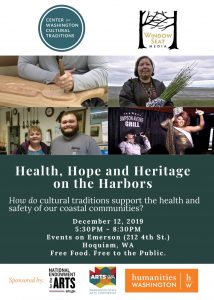
Please join us for “Health, Hope and Heritage on the Harbors,” a mini-symposium on the traditional culture of Grays Harbor and Pacific Counties. December 12, 2019 at Events on Emerson in Hoquiam (212 4th Street). 5:30pm to 8:30pm. Maritime practices, tribal weaving and woodwork, and drag are among the numerous traditions that are present in the Twin Harbors. This event features panel discussions that will not only explore area traditions, but also examine their impact on the social and physical health of the community. “Health, Hope and Heritage on the Harbors” caps a year-long collaboration with Window Seat Media to document traditions in the Twin Harbors as part of our “Cultural Traditions Survey” program.














